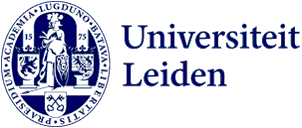
New spinoff company to solve major roadblock in the quantum revolution
Physicist Kaveh Lahabi’s research on quantum materials led to the launch of a new company: QuantaMap. With his colleagues, he developed a sensor that will improve the production of quantum computer chips. ‘It turns out that what I need for my fundamental physics research is also very useful for the quantum industry.’
Lahabi studies quantum materials at the Leiden Insitute of Physics (LION), trying to understand their exotic physics. ‘I had all these big questions I wanted to study, and I realised that I’ll need a new type of microscope to answer them’, says Lahabi. ‘One that can measure not just parameter, but many at the same time: currents, magnetism, temperature, microwave frequencies, and surface structure. And all that with nanometer resolution.’
The story so far
Lahabi recognised that the properties he needed to measure for his research were key performance indicators for quantum computing chips as well. ‘Our sensing technology presented a real opportunity for valorisation, so with the support of LION management and the business developers at LURIS, I decided to file for a patent. My colleagues, Milan Allan and Johannes Jobst, and former student, Jimi de Haan, embarked on this exciting journey with me. That led to the launch of QuantaMap.’
' Fundamental science and industrial interests can overlap in unexpected ways.'
Quantum computers require a quantum chip. However, those are complex and difficult to produce. When they do not work as well as they should (and they often don’t), there is no way to find out why, which component failed, and how to improve the production processes. QuantaMap is about to change that.
Lahabi explains how their novel technology works. ‘We integrated a quantum sensor into the probe of a microscope. When the probe scans the surface of a sample - like a chip - to image the surface, the sensor measures properties like the current, temperature and magnetic field in parallel.’
‘We are years ahead of competitive techniques’
The technology that the researchers develop will allow chip manufacturers to closely inspect each chip to assure and improve its quality. Johannes Jobst, now the CEO of QuantaMap, illustrates this. ‘Imagine if every quantum researcher and manufacturer had a finely tuned compass to navigate the uncharted quantum landscape of their chips. That's what we are creating.’
Alternative technologies do exist, but are not well suited for quantum chips. Either because they disturb the qubits while measuring, or because they have a high chance of damaging the chip while imaging. QuantaMap’s technology works at extremely low temperatures to ensure the operating conditions of the chip are maintained during imaging. ‘Our unique sensors and quantum-first approach put us years ahead of any emerging competitive techniques,’ says Jobst.
Positive interaction between research and industrial applications
That their technology has potential is clear. The researchers established the company one year ago and already secured €1.4 million. Part of the funding comes from QDNL Participations. Managing director Ton van 't Noordende says: ‘QuantaMap is addressing a crucial challenge in the industry: the difficulty of producing reliable quantum chips.’
Starting a company was a first for Lahabi. ‘My research will always be driven by the problems that challenge our fundamental understanding of physics, not by industrial applications,’ he says. ‘However, this experience has taught me that fundamental science and industrial interests can overlap in unexpected ways. When such opportunities arise they are definitely worth pursuing. Not only can they lead to complementary societal impact, they can also benefit the research. Looking back, the launch of QuantaMap had a positive impact on my research by accelerating the development of the state-of-the-art microscope in my lab.’
